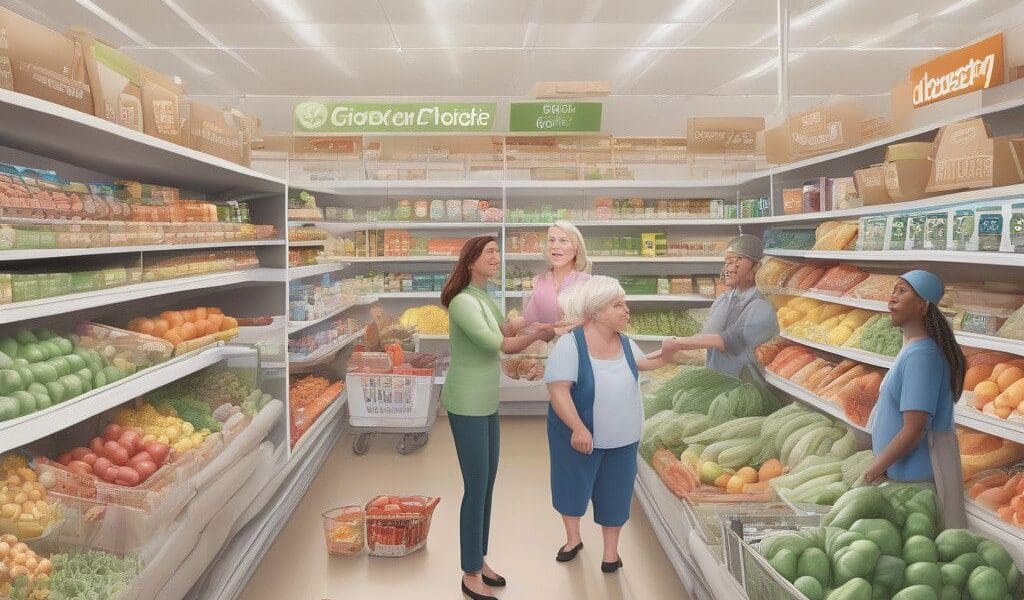In the wake of growing concerns over food waste, an innovative initiative from Therm Solutions, Inc. aims to transform how grocery retailers manage edible food that would otherwise end up in landfills. This Illinois-based startup recently announced a pioneering food loss diversion carbon credit project that promises to incentivize grocery stores to amplify their food donation efforts while reducing their carbon footprint.
According to the United States Department of Agriculture (USDA), between 30% and 40% of the food supply in the U.S. is wasted. This startling statistic not only reflects inefficiencies within the food supply chain but also underscores the environmental impact of food waste. When food is discarded in landfills, it generates significant greenhouse gas emissions contributing to climate change. Therm Solutions seeks to tackle this issue head-on by developing a system that redirects surplus edible food from over 1,300 grocery stores and 18 food distribution centers across seven states to various food donation centers.
Fritz Troller, CEO and co-founder of Therm Solutions, emphasizes the dual benefits of this initiative. “Decarbonizing the food supply chain by targeting food waste at its source — grocery stores — is a major opportunity for both people and planet,” he states. The carbon credit element of the program allows grocers to earn credits for the waste they divert, incentivizing them to make more significant contributions to food banks and similar organizations.
The ambitious project is expected to result in the issuance of more than 112,000 metric tons of carbon dioxide equivalent (mTCO2e) carbon credits annually. This volume of credits is significant; it represents a meaningful step toward mitigating the environmental impact of food waste. Such credits can be traded on the Verra’s Verified Carbon Standard (VCS) Registry, which certifies projects for greenhouse gas emissions reduction and creates a market for these credits.
The economic implications are noteworthy, as they provide a substantial financial incentive for grocers to engage actively in sustainable practices. For many grocery retailers, donating food is not always seen as feasible due to operational costs or logistical challenges. However, with the potential for earning carbon credits, retailers have the opportunity to offset some of those costs, making food donation a more appealing option.
The timing of this initiative coincides with a broader push for corporate responsibility across various sectors. Grocery stores are increasingly being held accountable for their waste management practices, and consumers are becoming more aware of the sustainability practices of their favorite brands. Engaging in food donation not only boosts a grocer’s sustainability profile but also resonates with socially conscious consumers.
For instance, companies like Whole Foods have been recognized for their innovative approaches to reducing food waste and supporting local communities through food donations. Therm Solutions’ program aligns well with this trend, providing a structured framework to elevate the efforts of grocery stores across the country.
Moreover, it is essential to recognize that this project is a multifaceted solution to a complex problem. Food waste presents a myriad of challenges, from environmental implications to social injustices where perfectly good food goes uneaten while millions face food insecurity. By addressing waste directly at grocery stores, the initiative supports sustainable practices while simultaneously providing food to those in need.
As the grocery industry continues to adapt to consumer demands and environmental challenges, initiatives like the food loss diversion project by Therm Solutions exemplify how innovation can pave the way for a more sustainable future. The project not only serves the dual purpose of reducing waste but also fosters a culture of giving back, creating a win-win situation for grocery retailers and their communities.
In conclusion, the food loss diversion carbon credit project by Therm Solutions offers grocers a compelling strategy to tackle food waste while enhancing their corporate responsibility efforts. By encouraging food donations through the latest carbon credit initiative, the program stands to make significant contributions toward a more sustainable food supply chain, paving the way for a greener future.











